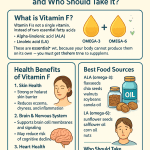This article is for informational purposes only and should not be considered medical advice. Always consult a healthcare professional for personalized guidance.
Understanding Blood Sugar Levels
Blood sugar, or glucose, serves as a vital source of energy for your body. However, maintaining optimal levels is crucial for overall health. When blood sugar levels rise too high, it can lead to serious health issues, including diabetes, heart disease, and nerve damage. But how can you manage these levels naturally? Let’s explore effective strategies.
Pathophysiology of Blood Sugar Regulation
Blood sugar regulation involves a complex interplay of hormones, primarily insulin and glucagon, produced by the pancreas. Insulin facilitates the uptake of glucose into cells, lowering blood sugar levels, while glucagon raises blood sugar by promoting glucose release from the liver. Dysregulation of these hormones can lead to conditions like insulin resistance, where cells become less responsive to insulin, resulting in elevated blood sugar levels.
Additionally, the liver plays a critical role in glucose production and storage. When insulin is insufficient or ineffective, the liver continues to release glucose into the bloodstream, exacerbating high blood sugar levels. Understanding this mechanism is essential for developing effective management strategies.
Dietary Adjustments
1. Choose Low Glycemic Index Foods
The glycemic index (GI) measures how quickly foods raise blood sugar levels. Foods with a low GI, such as whole grains, legumes, and most fruits and vegetables, are digested slowly, leading to a gradual increase in blood sugar. For instance, opting for quinoa instead of white rice can help stabilize blood sugar levels. Consider pairing low GI foods with healthy fats or proteins to further slow digestion.
2. Increase Fiber Intake
Fiber slows down the digestion of carbohydrates, preventing spikes in blood sugar. Incorporate more fiber-rich foods like beans, lentils, oats, and leafy greens into your meals. A simple way to do this is by adding a side of steamed broccoli or a salad to your lunch. Aim for at least 25-30 grams of fiber daily, as studies suggest that higher fiber intake is associated with better blood sugar control (PubMed).
3. Control Portion Sizes
Overeating can lead to elevated blood sugar levels. Practicing portion control can help maintain balance. Use smaller plates, measure serving sizes, and listen to your body’s hunger signals. Additionally, consider the timing of your meals; eating smaller, more frequent meals can help keep blood sugar levels stable throughout the day.
Incorporating Physical Activity
4. Regular Exercise
Engaging in regular physical activity can significantly improve insulin sensitivity and help lower blood sugar levels. Aim for at least 150 minutes of moderate aerobic activity each week, such as brisk walking or cycling. Even short bursts of activity, like a 10-minute walk after meals, can be beneficial. Research indicates that post-meal physical activity can effectively lower blood sugar spikes (NHS).
5. Strength Training
Incorporating strength training exercises at least twice a week can also aid in blood sugar management. Building muscle helps your body use insulin more efficiently. Consider bodyweight exercises, resistance bands, or weights. A combination of aerobic and strength training has been shown to be particularly effective in improving glycemic control (CDC).
Natural Supplements and Remedies
6. Explore Herbal Remedies
Several herbs and supplements may support blood sugar control. For instance, cinnamon has been shown to improve insulin sensitivity and lower blood glucose levels. Additionally, berberine, found in plants like goldenseal, has been linked to better blood sugar regulation. A meta-analysis found that berberine can significantly reduce fasting blood glucose and HbA1c levels (UpToDate). Always consult with a healthcare provider before starting any new supplement.
7. Stay Hydrated
Drinking water can help your kidneys flush out excess sugar through urine. Aim for at least 8 cups of water daily, and consider herbal teas as a flavorful alternative. Staying hydrated can also help prevent dehydration, which can affect blood sugar levels.
Stress Management
8. Practice Mindfulness and Relaxation Techniques
Stress can lead to increased blood sugar levels due to the release of cortisol. Incorporating mindfulness practices such as yoga, meditation, or deep-breathing exercises can help manage stress effectively. Even dedicating a few minutes daily to relaxation can make a difference. Research suggests that mindfulness-based interventions can improve glycemic control in individuals with diabetes (American Diabetes Association).
Patient Vignette
Consider Sarah, a 45-year-old woman diagnosed with prediabetes. After learning about the importance of diet and exercise, she began incorporating low GI foods into her meals, such as whole grain toast with avocado for breakfast. She also took up brisk walking for 30 minutes daily. Within three months, Sarah not only lost weight but also saw her blood sugar levels drop to a normal range. Her story illustrates how small, consistent changes can lead to significant health improvements.
Practical Tips for Daily Management
1. Meal Planning
Plan your meals for the week ahead. This can help you make healthier choices and avoid impulsive eating. Consider preparing meals in batches to save time and ensure you have healthy options readily available. For instance, cooking a large pot of chili or soup can provide several meals throughout the week.
2. Monitor Your Blood Sugar
Regularly checking your blood sugar levels can help you understand how different foods and activities affect your body. This awareness can empower you to make informed choices. Keeping a journal of your readings, along with notes on what you ate and your activity levels, can provide valuable insights.
3. Get Support
Consider joining a support group or working with a dietitian who specializes in diabetes management. Sharing experiences and strategies with others can provide motivation and encouragement. Online communities can also offer a wealth of resources and support.
Myth vs. Fact
Myth: You can’t eat carbohydrates if you want to lower blood sugar.
Fact: It’s not about eliminating carbs but choosing the right types and controlling portions. Whole grains and fiber-rich foods can be beneficial.
Myth: Natural remedies alone can replace medication.
Fact: While natural methods can support blood sugar management, they should complement, not replace, prescribed medications. Always consult with a healthcare professional.
Frequently Asked Questions (FAQs)
1. What foods can help lower blood sugar?
Foods high in fiber, such as beans, lentils, whole grains, and non-starchy vegetables, can help lower blood sugar levels.
2. How much exercise is needed to lower blood sugar?
Aim for at least 150 minutes of moderate aerobic exercise weekly, combined with strength training at least twice a week.
3. Can stress affect blood sugar levels?
Yes, stress can raise blood sugar levels due to the release of stress hormones like cortisol.
4. Are there any natural supplements that can help?
Herbs like cinnamon and supplements like berberine may help improve blood sugar control, but consult your doctor before use.
5. How can I stay hydrated effectively?
Aim for at least 8 cups of water daily, and consider herbal teas for variety.
6. Should I avoid all sugars?
Not all sugars are bad; focus on reducing added sugars and choosing natural sources like fruits.
7. Can I manage my blood sugar without medication?
While lifestyle changes can significantly impact blood sugar levels, some individuals may still require medication. Always consult with your healthcare provider.
8. What role does sleep play in blood sugar management?
Insufficient sleep can disrupt hormones that regulate blood sugar, leading to increased levels. Aim for 7-9 hours of quality sleep each night.
9. How does alcohol consumption affect blood sugar?
Alcohol can cause fluctuations in blood sugar levels. Moderate consumption may not have a significant impact, but excessive drinking can lead to hypoglycemia or hyperglycemia. Always monitor your levels if consuming alcohol.
10. Can intermittent fasting help with blood sugar management?
Some studies suggest that intermittent fasting can improve insulin sensitivity and reduce blood sugar levels. However, it may not be suitable for everyone, especially those with diabetes. Consult a healthcare provider before trying fasting.
Key Takeaways
- Opt for low glycemic index foods to stabilize blood sugar.
- Increase fiber intake with beans, lentils, and vegetables.
- Incorporate regular exercise for better insulin sensitivity.
- Consider natural supplements like cinnamon and berberine after consulting a healthcare provider.
- Manage stress through mindfulness and relaxation techniques.
- Stay hydrated to help your body regulate blood sugar levels.
- Plan meals ahead and monitor blood sugar for better management.
References
- PubMed: Glycemic Index and Its Role in Diabetes Management
- WHO: Diabetes Fact Sheet
- CDC: Managing Diabetes
- NHS: Diet and Diabetes
- UpToDate: Lifestyle Modifications for Diabetes
- American Diabetes Association: Nutrition Therapy for Diabetes








Post a comment